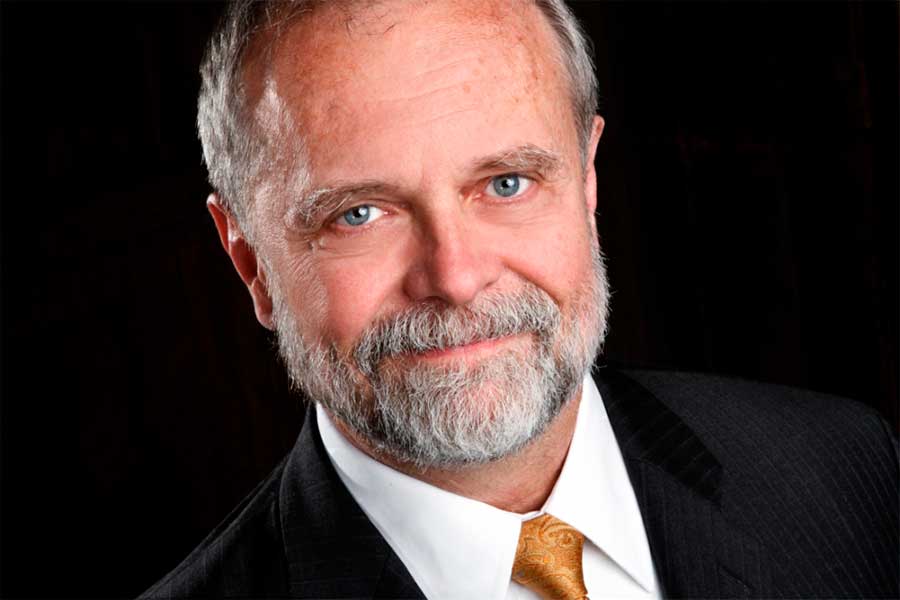Philadelphia’s binge-worthy opera festival, O19, is here and features legendary out conductor Gary Thor Wedow. This year, he conducts the Opera Philadelphia Orchestra in George Frideric Handel’s “Semele” beginning September 19. Wedow, a faculty member at Juilliard for 25 years and master of Handel’s rippling musicality, sat down with PGN to talk about the upcoming production.
PGN: What is your relationship to Handel and the score of “Semele”?
GTW: Handel is my dear, close friend. My first job, even while I was in graduate school at the New England Conservatory, was as associate conductor for the Handel and Haydn Society of Boston. I’ve conducted a dozen of his operas, most of them in several different productions, and oratorios — he called “Semele” an oratorio, but it is an opera! — along with many of his orchestral works and, of course, “Messiah,” which has been with me all my life. I love how Handel challenges your brain with his German structure and pure harmony. But, his elegant Italian melodic style caresses your heart and ear, and his librettos inspire your imagination, and, in this case, he poses a very British moral tale. If Handel were a car, he would have a body by Ferrari, motor by Audi and interior by Rolls-Royce. “Semele” is another familiar friend, having conducted it before, most recently in Seattle, and having grown up with it in various productions.
PGN: How do Handel’s melodies and arrangements work with the tale of jealousy and revenge found in “Semele”?
GTW: Handel almost never worked from an original libretto. The libretto of “Semele” is reused and refurbished from an earlier libretto by William Congreve, the great Restoration comedic playwright. The text is brilliant: multilayered, witty, insightful, cutting, political and heartbreakingly poignant. The question of why we court ambition even though it will literally destroy us is an eternal one. We are seeing it played out on the stage of the world every day. This libretto was written originally for Anne Bracegirdle, one of Britain’s greatest actresses in the Restoration period. The Restoration was the first time women were legally allowed to appear on stage, and women on the stage inflamed the public. Anne Bracegirdle was so beautiful that men killed themselves in the street over her. She retired before she was able to perform in a musical version of the libretto by the composer John Eccles, so the libretto was never performed, and Handel inherited it. Handel is a great psychologist and dramatist, so he responds to this cautionary tale with some of his widest variety of musical styles, from grand opera, British cathedral sacred music and virtuosic Italian opera melodies to British music-hall tunes and some of his most intimate chamber music. He tears apart the formal structures that he himself codified, and yet, at the same time, writes beautiful fugues and classical symmetrical forms.
PGN: How has it been to work with such an acclaimed assembly that includes soprano Amanda Forsythe, mezzo Daniela Mack and tenor Alek Shrader?
GTW: These are smart, smart singers who approach their roles like vocal athletes — Handel makes you really work at the top of your vocal game — but who also think like actors and bring a discerning view to their interpretation. They are critical thinkers. No stand-and-sing mindless performances here.
PGN: How is it being LGBTQ in the worlds of classical music and opera?
GTW: I am very grateful to have been able to be out and welcomed from the very beginning of my opera career, having been a very closeted student in the Midwest. In Ellen Harris’s book, “Handel as Orpheus,” she “outs” Handel. The book was controversial when it was published, and, certainly, there is no direct evidence that Handel was gay, but then it was a very secretive and repressive period for our gay predecessors. There is a lot of indirect evidence about Handel, including his musical and text choices and what we know about his close personal friends. In Italy, they called him “The Great German Bear.” I think opera asks us to express our innermost selves and intimate emotions, so it is difficult to be anyone other than oneself; therefore I think opera requires all of us to be ourselves, gay or straight or whatever spectrum of the rainbow you are. Other performers and colleagues are usually amazingly open and supportive in return, especially if you can do your job. I imagine it has always been so. Gay people — who, I think, feel so intensely — are not only attracted to opera, but are welcomed into it.
